-
Whitefish Montana
Vendor: John T DavisA hobo sitting beside a fire in MontanaThese photos were taken by director and film maker John T Davis during the making of the critically acclaimed film 'Hobo'. Hobo is an intensely personal portrait of the classic American railroad traveller. A wandering man, cast...- From £35.00
- From £35.00
- Unit price
- per
-
Boxcar Wyoming
Vendor: John T DavisBeargrease the hobo, an ex-Vietnam vet, looking out of a boxcar, travelling through WyomingThese photos were taken by director and film maker John T Davis during the making of the critically acclaimed film 'Hobo'. Hobo is an intensely personal portrait of the classic American...- From £35.00
- From £35.00
- Unit price
- per
-
Westbound Dakota
Vendor: John T DavisThis is a photograph of a Hobo called Beargrease who has unfortunately "caught a westbound" since this was taken.These photos were taken by director and film maker John T Davis during the making of the critically acclaimed film 'Hobo'. Hobo is an intensely personal...- From £35.00
- From £35.00
- Unit price
- per
-
Boxcar Montana
Vendor: John T DavisView from a boxcar of the Montana Landscape.These photos were taken by director and film maker John T Davis during the making of the critically acclaimed film 'Hobo'. Hobo is an intensely personal portrait of the classic American railroad traveller. A wandering man, cast...- From £35.00
- From £35.00
- Unit price
- per
-
Montana
Vendor: John T DavisPhotograph of a freight train travelling through the Montana landscape, along a track known as the 'Highline'.These photos were taken by director and film maker John T Davis during the making of the critically acclaimed film 'Hobo'. Hobo is an intensely personal portrait of...- From £35.00
- From £35.00
- Unit price
- per
Featured Artists
Other Artists
Featured Categories
Featured Subjects
Other Subjects
-
 Free Delivery to UK & Ireland on orders over £150 - See Details
Free Delivery to UK & Ireland on orders over £150 - See Details
-
 Next Day Delivery available Framed / Unframed
Next Day Delivery available Framed / Unframed
-
 0% Finance Available - See Details
0% Finance Available - See Details
John T Davis
Director John T Davis was born in Holywood in 1947. He became a professional filmmaker in 1976 and since then he has earned considerable respect and acclaim for his distinctive style and sincere approach. “I believe in laying my own heart open before I start interviewing or filming” - Davis. His first major film success came with “Shellshock Rock” in 1979, which documented the Northern Ireland’s punk scene. This was followed by “Route 66”, a journey from Chicago to LA, which explored the music and attitudes of middle America along this celebrated highway. It was described by The Guardian newspaper as “hypnotic and unforgettable”. “Power in the Blood”, a film made for BBC Television’s flagship arts programme “Arena”, focused on Vernon Oxford, a one-time country singer turned gospel preacher, on his journey from Tennessee to a missionary tour of Northern Ireland.
The Times newspaper described it as “visually powerful and emotionally compelling”. John’s film “Heart on the Line” sees him back in America, looking at the songwriters of Nashville, showing their integrity and passion and whose talent is the lifeblood of country music. And so to “Hobo”, (which many of the photographs shown here are from), which saw John himself living as a Hobo for three months, with his camera hidden in his bedrole, jumping the freights to a soundtrack of Bob Dylan and Woody Guthrie. This film was broadcast on BBC2 to open a filmmaker led series, and has won much critical acclaim. HOBO The Film “Hobo” is an intensely personal portrait of the classic American railroad tramp, a wandering man, a fiercely independent man, cast by choice into the world outside the law, into a world that has its own values and codes, a culture that still exists in America. It follows the journey of “Beargrease”, an ex-Vietnam Vet, as he hops the freights from Minneapolis, Minnesota, through the Rockies to Seattle, two thousand miles of bitter, cold, hard travelling on a track known as the Highline. This film documents the daily life of this highly articulate man, revealing his personal thoughts and philosophies, and those of other “boxcar philosophers”, questioning human nature, freedom and responsibility, and the thin thread on which our own reality hangs.
Sidebar
- Choosing a selection results in a full page refresh.

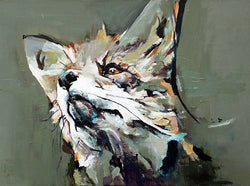 Andrea Valkai
Andrea Valkai
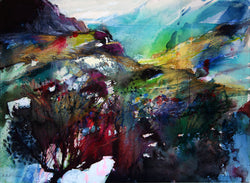 Barbara Ellison
Barbara Ellison
 Jackie Morris
Jackie Morris
 John Tinneny
John Tinneny
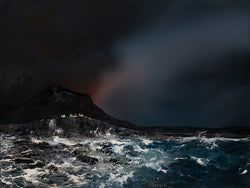 Sharon Millar
Sharon Millar
 Children's Illustrations
Children's Illustrations  Originals
Originals  Fine Art Prints
Fine Art Prints  Posters
Posters  Photography
Photography  Belfast
Belfast
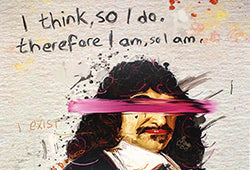 Books & Literature
Books & Literature
 Food & Drink
Food & Drink
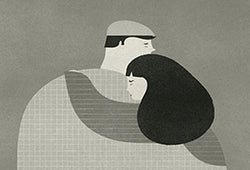 Love
Love
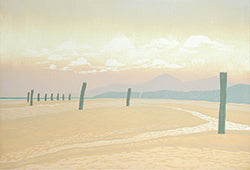 Travel
Travel




